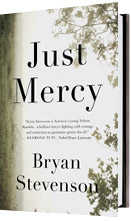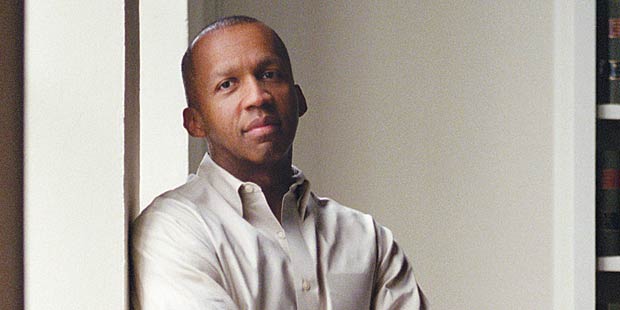Keeping Close
Printer Friendly VersionMy grandmother was the daughter of people who were enslaved in Caroline County, Virginia. She was born in the 1880s, her parents in the 1840s. Her father talked to her all the time about growing up in slavery and how he learned to read and write but kept it a secret. He hid the things he knew—until Emancipation. The legacy of slavery very much shaped my grandmother and the way she raised her nine children. It influenced the way she talked to me, the way she constantly told me to “Keep close.”
When I visited her, she would hug me so tightly I could barely breathe. After a little while, she would ask me, “Bryan, do you still feel me hugging you?” If I said yes, she’d let me be; if I said no, she would assault me again. I said no a lot because it made me happy to be wrapped in her formidable arms. She never tired of pulling me to her.
 “You can’t understand most of the important things from a distance, Bryan. You have to get close,” she told me all the time.
“You can’t understand most of the important things from a distance, Bryan. You have to get close,” she told me all the time.
The distance I experienced in my first year of law school made me feel lost. Proximity to the condemned, to people unfairly judged; that was what guided me back to something that felt like home.
This book is about getting closer to mass incarceration and extreme punishment in America. It is about how easily we condemn people in this country and the injustice we create when we allow fear, anger, and distance to shape the way we treat the most vulnerable among us. It’s also about a dramatic period in our recent history, a period that indelibly marked the lives of millions of Americans—of all races, ages, and sexes—and the American psyche as a whole.
We are all implicated when we allow other people to be mistreated. An absence of compassion can corrupt the decency of a community, a state, a nation. Fear and anger can make us vindictive and abusive, unjust and unfair, until we all suffer from the absence of mercy and condemn ourselves as much as we victimize others. The closer we get to mass incarceration and extreme levels of punishment, the more I appreciate that we all need mercy, we all need justice and—perhaps—we all need some measure of unmerited grace.
—From Just Mercy by Bryan Stevenson. Reprinted by arrangement with Spiegel & Grau, an imprint of Random House.
—
